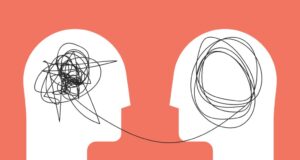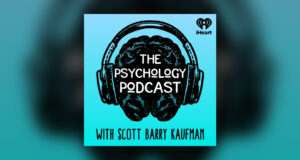
In today’s digital age, it’s almost impossible to avoid news updates, social media notifications, or the constant influx of information at our fingertips. While staying informed can be empowering, it can also spiral into a behavior known as doomscrolling—a habit that can take a toll on your mental well-being.
What is Doomscrolling?
Doomscrolling (or doomsurfing) refers to the act of obsessively scrolling through negative or distressing news, often on social media or news platforms, even though it leaves you feeling anxious, overwhelmed, or hopeless. It’s a phenomenon where people find themselves glued to their screens, consuming bad news long past the point of being informed or productive.
Imagine this: you check your phone to quickly catch up on the headlines, but instead of stopping after one or two stories, you find yourself scrolling for hours, reading one bleak report after another. Global crises, natural disasters, political turmoil, and tragic events dominate your feed, and yet you can’t seem to look away. This is doomscrolling in action.
Why Do We Doomscroll?
Doomscrolling is often linked to human psychology and our survival instincts. Here’s why it happens:
- Negativity Bias: Our brains are wired to focus on threats and negative information as a way to stay alert to danger. This evolutionary trait means we’re naturally drawn to bad news, even when it’s not immediately relevant to us.
- FOMO (Fear of Missing Out): Many people feel compelled to stay constantly updated, fearing they’ll miss something important if they disconnect—even if the updates only increase their stress.
- Lack of Control: In times of uncertainty or crisis, doomscrolling can feel like a way to regain control or prepare for the worst, even though it often has the opposite effect.
- Endless Content: Social media and news platforms are designed to keep us engaged. Algorithms tailor content to our interests, meaning one negative story leads to another, trapping us in a cycle of bad news.
The Impact of Doomscrolling on Mental Health
While it may start innocently as a way to stay informed, doomscrolling can have significant negative effects on your mental and emotional well-being:
- Increased Anxiety and Stress: Consuming a constant stream of distressing news can heighten feelings of fear and anxiety, leaving you in a state of perpetual worry.
- Feelings of Hopelessness: When bombarded with negative information, it’s easy to feel helpless or overwhelmed, as if the problems of the world are insurmountable.
- Sleep Disruptions: Late-night doomscrolling can disrupt your sleep patterns, especially when distressing content keeps your mind racing.
- Physical Health Issues: Excessive screen time, combined with the stress from consuming bad news, can contribute to headaches, fatigue, and even long-term issues like heart strain.
- Disconnection from the Present: By immersing yourself in an endless feed of negativity, you may lose touch with the positive aspects of your own life and surroundings.
How to Break the Doomscrolling Habit
If you find yourself caught in the cycle of doomscrolling, here are some practical steps to help you regain control:
- Set Time Limits for News Consumption:
- Schedule specific times during the day to check the news, and stick to them. Avoid scrolling late at night or first thing in the morning.
- Curate Your Feed:
- Follow reliable news sources and limit exposure to sensationalist or overly negative content. Unfollow accounts that contribute to anxiety or stress.
- Engage in Mindful Activities:
- Replace scrolling with activities that calm and ground you, such as reading, exercising, meditating, or spending time outdoors.
- Practice Digital Detox:
- Take regular breaks from social media and your phone. Start with a few hours and gradually extend the detox period.
- Focus on Solutions:
- Seek out positive stories or constructive content that highlights solutions, progress, or acts of kindness rather than just problems.
- Stay Present:
- Use techniques like mindfulness or journaling to reconnect with the present moment and focus on what you can control.
Final Thoughts
Doomscrolling might feel like a way to stay informed, but it often traps us in a cycle of negativity that harms our mental health. By recognizing the habit and taking steps to break free from it, you can create a healthier balance between staying informed and protecting your well-being.
Remember, it’s okay—and necessary—to step away from the endless stream of bad news. Instead of focusing on what’s wrong in the world, make space for what’s right, both in your life and in the lives of those around you. Your mental health will thank you.
Photo by Vardan Papikyan on Unsplash




